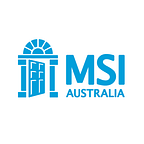Preparing abortion providers of the future — reshaping abortion education in Australia
Abortion is essential. This means that having a workforce to provide abortions is essential.
Through the past few years, we’ve seen how quickly healthcare can change. It seems inevitable that one day people other than doctors may be providing abortion care. How can we best prepare these future abortion providers?
In this article we look at perspectives from nurses, midwives and medical educators, give an overview of current abortion education in Australia and identify areas for improvement.
Unfortunately, there are still relatively few abortion providers in Australia.
This means that many people, especially those facing intersectional issues such as racial or gender-based discrimination, gender-based violence, poverty and disability find it difficult to access abortion services.
“I had to do a referral for a girl…living with an ex-partner who has become an ice addict, and he’s giving her a lot of drama…she’s also got a baby that’s very sickly, and she herself mentally was just melting down. And she ended up going and taking a loan out because they were taking too long”. Nurse Practitioner, capital city.
One solution to the abortion access issue is training a wider range of health professionals to become abortion care providers. However, much like abortion law, abortion education is a patchwork across universities in Australia, with no consistent curriculum requirements.
Nursing and midwifery students graduate with inconsistent knowledge about abortion.
With nursing courses built on abstract standards, individual education providers determine when nurses are “work ready”. Nurse-led care is just one way to improve abortion access in Australia but we need good quality training systems to support this model of care. Unplanned pregnancy options and care content in Australian nursing and midwifery courses (including abortion care) is not prioritised — most likely due to an overloaded curricula and educators’ beliefs about the importance of the topic.
“I attended a university that’s Catholic based, so in our midwifery curriculum we weren’t actually taught about abortion…which of course you go out in your grad year and puts you on a back foot immediately. I obviously had to self-educate around the area”. Midwife, regional city.
If abortion is addressed in curricula, it is most often situated as an intended pregnancy issue, with the view for counselling for grief and loss, or within an ethical or legal framework.
Medical schools across the country are also lacking abortion care education.
This is despite doctors currently being the main providers of abortion care.
The silver lining is that medical students are more pro-choice than ever! A national survey conducted by The Australian Medical Student Association found a mere 12% of survey responders were satisfied with the abortion care curriculum, with the rest wanting greater coverage of abortion care content.
However, there’s also only so much you can learn in a classroom. Hands-on, clinical experience is a major factor influencing students’ understanding of the abortion care process.
“Within the hospital system, termination for fetal malformation comes up as something every now and again, but it would be purely serendipitous. It certainly wouldn’t be an experience for every student.” Medical Educator, capital city.
Currently, healthcare students are limited from assisting in abortion care during clinical placements due to a range of factors (e.g. lack of public hospital provision of the service, hospital-specific policies and state and territory laws).
But it’s not all bad news
Healthcare graduates also come with range of transferable skills, especially soft skills, which are vital for providing person-centred abortion care. To support the development of these soft skills, we need greater harmonisation of national abortion care curricula.
“…mid-level providers (such as nurses and midwives), especially those who manage normal pregnancies, possess the requisite clinical skills to provide MToPs. Such skills include the administration of medications, assessment of gestational age, diagnosis of ectopic pregnancy, family planning counselling and the management of obstetric complications”. –Lydia Mainey, Nursing Academic.
We must also continue to improve clinical experience opportunities through robust, industry-led continuing professional development for those interested in providing abortions.
These moves towards improving abortion education are essential. Australia must ensure that we have a qualified and confident abortion care workforce for the future by continuing to lobby for abortion care content in the entry-to-practice curricula.
Bios
Lydia Mainey is a nursing academic at CQUniversity in Cairns, Australia. She is a Registered Nurse and has worked across a range of clinical settings including abortion care and (remote) primary care. Lydia’s area of research focus is to improve pregnant people’s access to comprehensive, trauma-informed reproductive healthcare.
Lydia is nearing the completion of her PhD and her research findings explain the process of providing nursing and midwifery abortion care to people victimised gender-based violence.
Lydia has recently won an Australasian Sexual Health and HIV&AIDS Conferences Early Career Researcher Award for her recent presentation titled “Given the right set of circumstances, I’ll break the rules every time”: A situational analysis of abortion anarchy in Australia. Follow Lydia on Twitter.
Swathy Santhakumar is the Knowledge Coordinator at Marie Stopes Australia. She completed her honours research in 2020 looking at the coverage of abortion care content in medical schools across Australia. She is a proud member of Gen Z and wants to encourage more young people to engage in improving healthcare access and delivery. Follow Swathy on Twitter.
